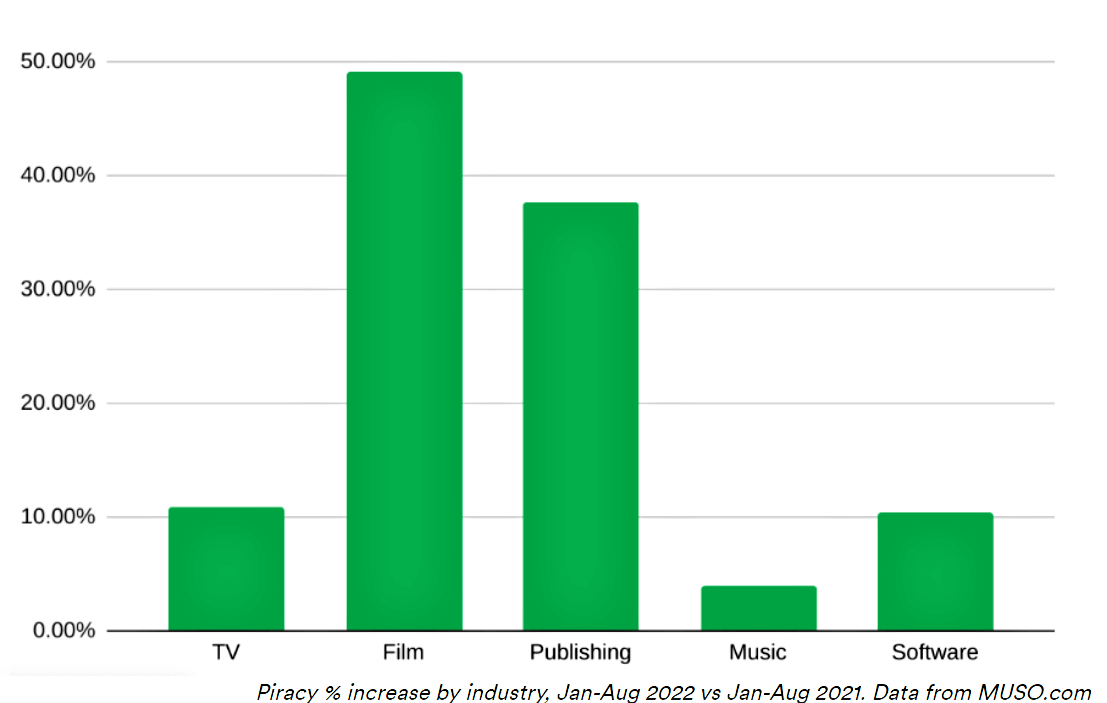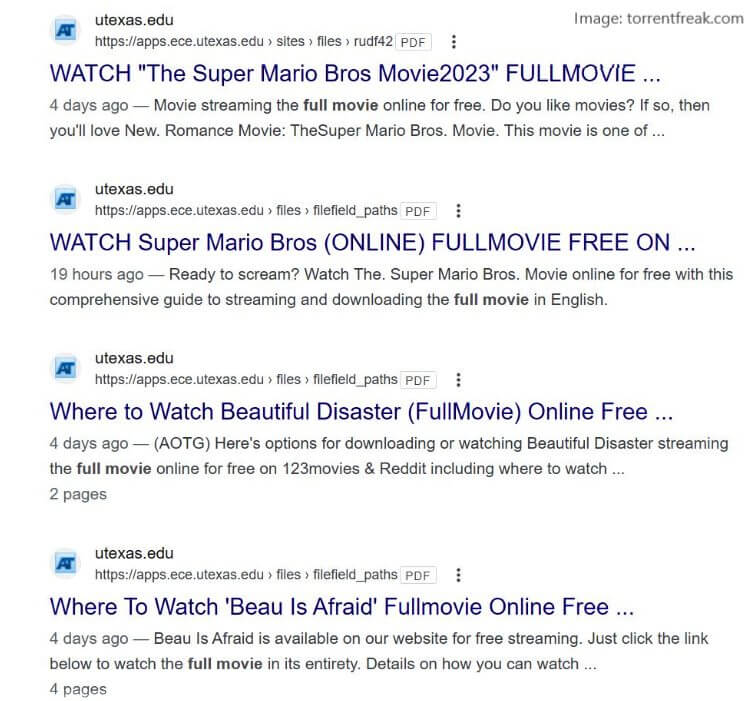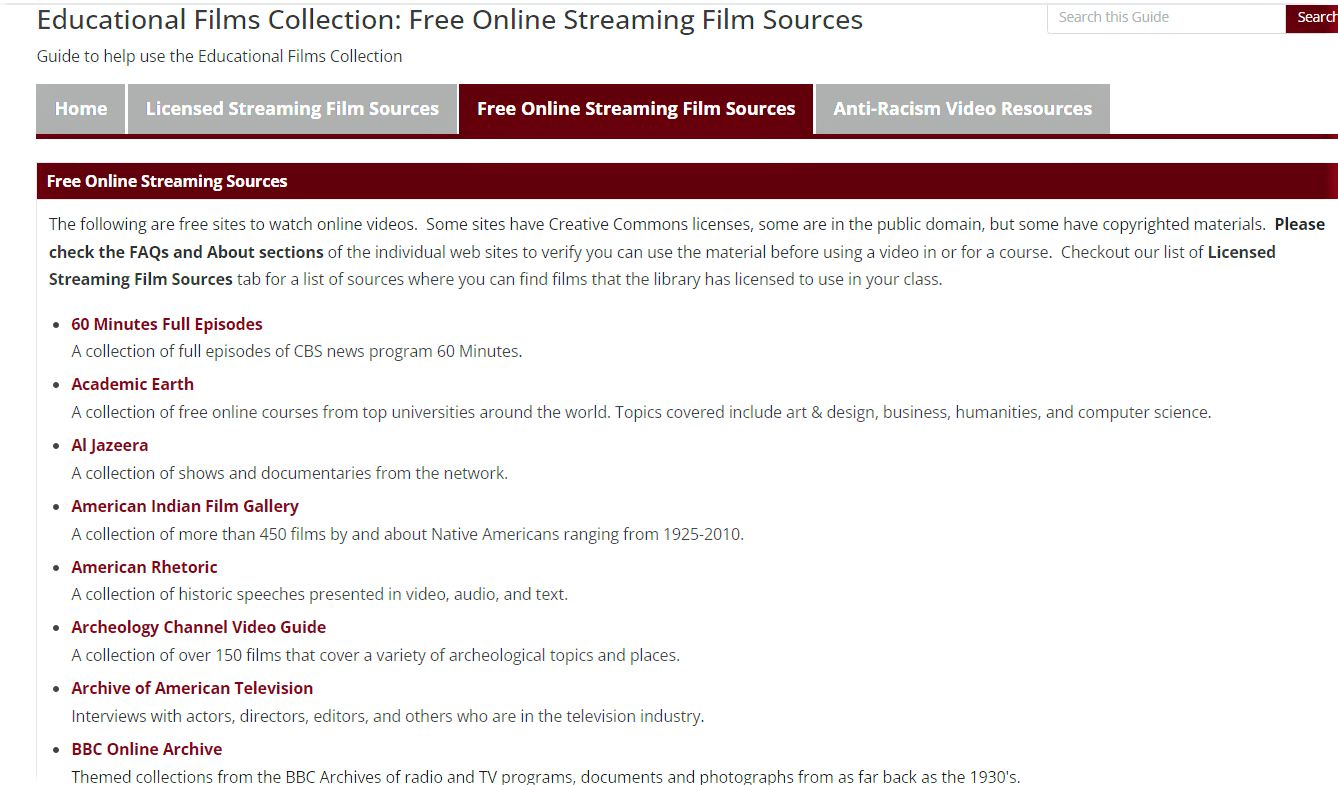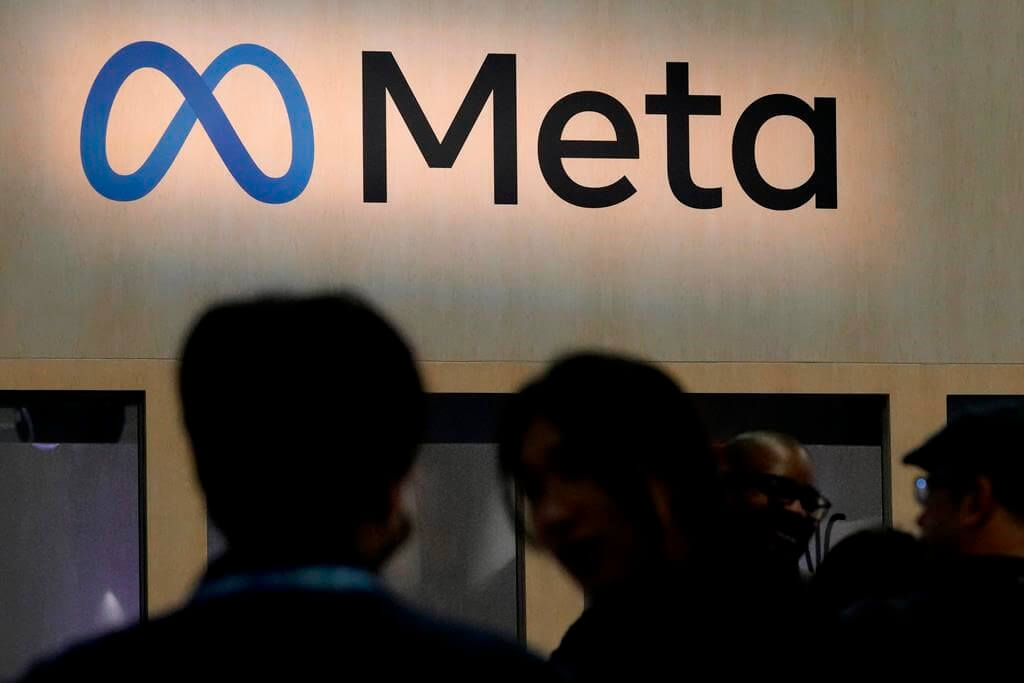
Being a college or university student can be fantastic. For many people, going to college is one of the best experiences of their lives. However, in our ever-evolving world, today’s students are facing a myriad of new challenges and obstacles which can directly impact their academic journey and ability to succeed. Besides for concerns around mental health, social pressures, global issues, uncertainty in a shifting job market and student debt, students at some universities now have to navigate illegal trip-wires in the form “ads” which are actually scams. There’s been an increase of scammers linking official school websites with “ads” on search engines, such as Google, which advertise access to “free” movies.
If recent AI news is any example, technological innovation often moves faster than the laws created to monitor and track it. Cases of people accessing movies and music for free over the internet are still relatively new in the world of copyright; the Act was created in 1790. Many of us still remember when Napster hit the scene in the early 2000’s.
In what is believed to be the first case in the US of a student being charged for illegally downloading movies and music from the Internet, in 2005, Arizona University student Parvin Dhaliwal, was found guilty and sentenced to a three-month deferred jail sentence, three years of probation, a $5,400 fine and 200 hours of community service. Dhaliwal was 17 at the time and in an interview with CBS news, his father shared, “his son had made a mistake, and was trying to put the case behind him.” The judge in the case also ordered the youth to enroll in a copyright class at the University of Arizona. In Dhaliwal’s case it was found that he was fully aware and choosing to access pirated sites, but what if you unwittingly came across the illegal materials linked to your school’s official website?
Piracy is the unauthorized reproduction and distribution of products which are protected by intellectual property (IP) rights. According to a recent article in Research Policy (April 2023) it is estimated that piracy is responsible for billions of dollars in lost revenue per year. (Bender and Wang, 2009; Ma et al., 2014; Blackburn et al., 2019). According to MUSO, a global authority on digital piracy, “Piracy has seen a marked increase across 2022 with film piracy increasing by 36.4% and TV content piracy by 8.8%.”
Post secondary institutions tend to have stern anti-piracy policies for their students. The Higher Education Opportunity Act (HEOA) which went into effect in 2008, requires American post secondary institutes to create and implement effective anti-piracy policies. Although these differ from school to school, the majority of policies include technological anti-piracy measures as well as educational materials designed to inform students as to the seriousness of pirating and to deter the practice.
For an example of how HEOA has been implemented; The South New Hampster University created a policy which outlines:
- Institutions make an annual disclosure informing students that the illegal distribution of
copyrighted materials may subject them to criminal and civil penalties and details the
steps institutions will take to detect and punish illegal distribution of copyrighted - Institutions certify to the Secretary of Education that they have developed written plans
to “effectively combat” the unauthorized distribution of copyrighted material. - Institutions, “to the extent practicable,” offer alternatives to illegal file sharing.
- Institutions identify procedures for periodically reviewing the effectiveness of the plans
to combat the unauthorized distribution of copyrighted materials.
While post secondary institutions work to implement effective measures, scammers are working hard to exploit any weaknesses. Torrentfreak.com recently conducted a search targeting the official website for The University of Texas at Austin. They reported finding several scams advertising pirated movies in their results.

Many of these links are very tricky, and by attaching their scam to an official website, scammers are fooling people, more so than traditional piracy sites do. Students who follow these links are very likely receiving access to an actual “free movie”, often believing this is a legit offer, as it’s linked to their University’s website. However, quite often, to access the film they are being asked to enter personal information and credit card information.
These sites are seen as authoritative and valid by search engines, and as a result, the scams are found among the top results some searches. It’s completely understandable why these schools are having some challenges implementing effective policies as this is a bit of a moving target. Torrentfreak.com reported that shortly after conducting their search on The University of Texas website (1st screen shot above) the results had changed and several of the links had disappeared. It’s also understandable that students could get confused and possibly duped. Some schools do offer free access to movies and television for their students as part of their tuition. For example, University of South Carolina offers access to several TV shows and movies which have an academic purpose.

MUSO predicts that the demand for pirated materials will continue on an increase throughout 2023. They believe that the current economic pressures will likely drive users to seek alternative avenues for being able to watch movies and television, such as illegally streaming or downloading piracy sites. In addition, streaming sites are seeing losses of subscribers for their various legal streaming services. Streaming platforms, such as Netflix, have been hiking prices. According to makeuseof.com, “The cheapest plan now starts at $9.99 from the previous $8.99, while the Standard and Premium plans now cost $15.49 and $19.99, respectively.”
The same driving factors and pressures that are affecting the rest of society in 2023, are also affecting students who are also paying thousands for tuition, books, lodging, meal plans and school supplies. Legally, theses schools have to follow (HEOA) Higher Education Opportunity Act, but with many students not meaning to pirate, as they may be unwittingly accessing pirated materials through their campus websites, it is understandable why schools are having a tricky time with this.
An avid book reader and proud library card holder, Angela is new to the world of e-Readers. She has a background in education, emergency response, fitness, loves to be in nature, traveling and exploring. With an honours science degree in anthropology, Angela also studied writing after graduation. She has contributed work to The London Free Press, The Gazette, The Londoner, Best Version Media, Lifeliner, and Citymedia.ca.
